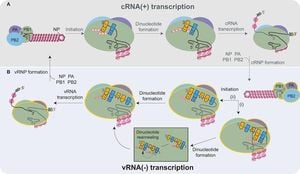The 2025 Bundestag election on February 23 marked a pivotal moment for Schleswig-Holstein, with the results reflecting significant changes in voter sentiment and party performance.
One of the most notable outcomes was the strong showing of the Christian Democratic Union (CDU), which garnered approximately 27.5% of the votes, marking an uptick of 4.4 percentage points from the previous election. The Alternative für Deutschland (AfD) also emerged as a significant contender, securing around 16.4%, representing a remarkable gain of 10 percentage points. Meanwhile, the Social Democratic Party (SPD) faced substantial losses, capturing only 18.7% of the votes, down by 9.3 percentage points compared to earlier results. The economic and political climate, perhaps, contributed to these shifts, as many voters appeared eager for change, signaling dissatisfaction with current governance. "The voters have sent a clear signal: They have dismissed the coalition after less than one term," stated CDU Landesvorsitzender Daniel Günther, speaking to the shifting political tide.
For the Greens, the results proved mixed, with reports indicating they had around 14.9% of the votes, experiencing losses of 2.7 points. Conversely, the smaller parties faced challenges under the impediments of the five percent electoral hurdle, which traditionally limits representation. The Südschleswigsche Wählerverband (SSW), representing the Danish minority, successfully bypassed this hurdle, achieving 4.1% of the vote—a figure substantial enough for them to claim representation. SSW member Stefan Seidler expressed satisfaction with the outcome, noting, "I’m highly satisfied with our party’s result, indicating the voters recognized our platform."
Meanwhile, Ralf Stegner of the SPD lamented his party's performance, declaring, "What a disaster for the SPD – third place behind extremists," highlighting the political fractures evident among voters. Stegner’s remark captured the disarray within the SPD as its candidates struggled to connect with the electorate.
Another surprising victor was Kurt Kleinschmidt of the AfD, who relished the heightened support for his party, exclaiming, "The result here for Schleswig-Holstein is absolutely incredible." His assertion reflected the growing acceptance of right-wing rhetoric among voters, raising questions about how parties of varying ideologies may address this surge moving forward.
Voter turnout was impressive, recorded at 82.3%, surpassing previous Bundestag elections. This rise suggests increased political engagement, with 2.26 million residents eligible to cast their votes, including roughly 85,300 first-time voters. The impressive turnout indicates citizens' desire to influence their local and national governance actively.
Analyzing the political atmosphere surrounding the election, the results indicated broader sentiments demanding change. The performance of parties, as illustrated by various quotes from key figures, reveals dissatisfaction with the status quo. Serpil Midyatli, also of the SPD, criticized the results as "I’m appalled about how many people voted for the far-right AfD," underlining her party's struggle to regain traction.
The political dynamics are expected to shift significantly as parties scramble to form alliances. The CDU appears poised to negotiate potential coalitions to secure governance, with Günther asserting, "Now it’s our responsibility to form a stable coalition." Meanwhile, AfD’s Kleinschmidt hinted at willingness to collaborate when stating, "We have extended our hand for coalition negotiations," adding weight to discussions about potential partnerships.
A noteworthy aspect of the election was the role of the SSW, which operates under different electoral rules, exempt from the five percent threshold. This unique designation allowed them to gain representation based on the volume of votes needed, with estimates positing they needed only around 40,000 votes to secure their entry back to the Bundestag. Seidler expressed confidence, stating, "We only need around 40,000 votes to get back to the Bundestag," demonstrating strategic foresight as they navigated the electoral process.
The outcomes of the 2025 Bundestag elections will undoubtedly shape the political framework not just within Schleswig-Holstein but also across Germany. The powerful message sent by voters—demanding accountability, effective action, and progressive reforms—will have long-lasting repercussions. Moving forward, how parties respond to these electoral outcomes will be telling of their adaptability and commitment to addressing voters' needs.



